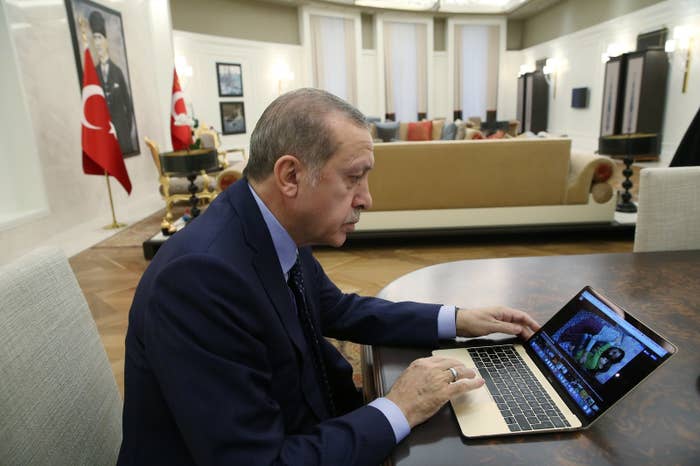
The Turkish government has blocked users in the country from visiting Wikipedia, according to monitors, the latest in a string of attempts by authorities to prevent citizens from viewing certain websites purportedly due to national security concerns.
Internet watchdog site Turkey Blocks confirmed Saturday that access to the free, crowd-sourced encyclopedia site had been completely restricted throughout the country.
The group said that officials had employed the block under an administrative measure.
Confirmed: All editions of the #Wikipedia online encyclopedia blocked in #Turkey as of 8:00AM local time… https://t.co/JkJewBoCrI
Update: #Wikipedia blocked in #Turkey under administrative measure No. 490.05.01.2017-182198 / 5651 (no court order… https://t.co/PYNMlUzmjK
According to a Turkey Blocks blog post, attempts to access the site resulted in error messages that indicated a failure to connect to authentic servers. The post also noted that the block spread across multiple internet servers.
The watchdog site also wrote that the administrative block would need to be followed by a full court blocking order in the next few days.
Turkey’s official telecommunications center, BTK, tweeted Saturday that Wikipedia had continued to support content on its site that claimed Turkey supported terrorist organizations.
The company added that it was not possible to block specific pages because of Wikipedia’s http layout, resulting in a "last resort" site-wide restriction.
The BTK also urged Wikipedia contributors and editors to “act responsibly” with content published on the site.
#Wikipedia
A few hours after the restriction was initiated, the Ankara First Criminal Court of Peace formally approved it, according to a Turkey Blocks tweet.
Update: Court order for #Wikipedia block approved by Ankara 1st Criminal Court of Peace https://t.co/LFun43BMP7
Later on Saturday, the Wikimedia Foundation, the nonprofit organization that operates Wikipedia, sent the following statement to BuzzFeed News:
The Wikimedia Foundation has learned that access to Wikipedia has been blocked in Turkey as of Saturday, April 29th. Wikipedia is a rich and valuable source of neutral, reliable information in hundreds of languages, written by volunteers around the world. We are committed to ensuring that Wikipedia remains available to the millions of people who rely on it in Turkey. To that end, we are actively working with outside counsel to seek judicial review of the decision affecting access to Wikipedia. We hope the issue can be resolved promptly.
In the wake of a failed coup in 2016, critics allege Turkey's government has taken an increasingly authoritarian approach, detaining opponents and empowering the presidency.
As the country slides further into autocracy, Turkey’s government has also established a reputation of banning websites during times of supposed national crisis or uncertainty.
On March 20, 2014, authorities blocked Turkish citizens’ access to Twitter because the social media platform was "indifferent to remove certain links despite court orders favoring the citizens of the Turkish Republic," Turkish Prime Minister Recep Tayyip Erdogan claimed.
A week later, the government did the same for YouTube. That move came hours after an alleged secret recording of Turkish officials discussing Syria was uploaded to the video site.
The following year, on April 6, 2015, Turkey shut down access to YouTube and (briefly) Twitter, days after a deadly hostage situation took place at an Istanbul courthouse, and a graphic photo of an assailant holding a gun to the head of a well-known Turkish prosecutor was published online and in local newspapers.
On Dec. 22, 2016, the government blocked Facebook, Twitter, and YouTube after a horrific video of an ISIS video surfaced online.
